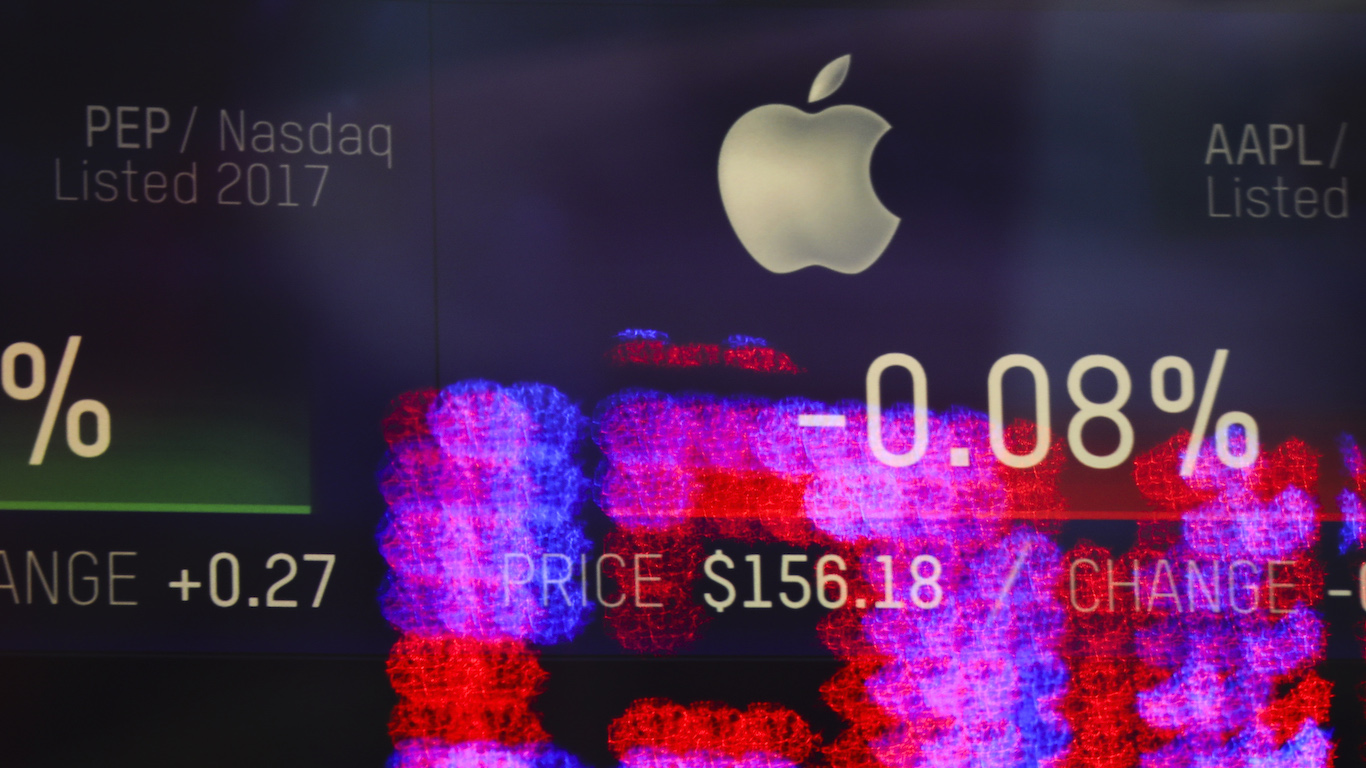Special Report
How the Wealthy Protect Their Assets in Recessions

Published:
Last Updated:

It seems that most economists are somewhat pessimistic, with 38% of those surveyed by the National Association for Business Economics in August 2019 expecting a recession in 2020, and 34% in 2021. There are several ways investors can protect their assets from a recession — including diversification, increasing the cash and fixed income portions, and investing more in safer, dividend-paying stocks. Some methods, however, are available only to wealthy investors.
The U.S. Securities and Exchange Commission defines accredited investors as those earning an income that exceeds $200,000 (or $300,000 together with a spouse) or those with a net worth of more than $1 million, alone or with a spouse (excluding the value of the person’s primary residence). Many U.S. senators can easily qualify. Here’s how rich every U.S. senator is.
Such individuals not only typically have professionally managed portfolios, but they also have access to securities offerings that are not available to investors of lesser means. Accredited investors are deemed financially sophisticated and better able to understand the risks and withstand the losses of those offerings than less affluent investors. It is with these investments that the wealthy can better protect their assets during recessions.
24/7 Wall St. relied on our editors’ knowledge and reviewed several financial sources to find the strategies and investments the wealthy safeguard their assets during downturns.
Click here to see how the wealth protect their assets in recessions
While some of the investments listed here are available to all investors, such as investing in defensive, dividend-paying stocks, the wealthy can certainly afford to buy more of them. Other strategies, on the other hand, are only available to accredited investors because of the larger minimum investments they require and the typically far higher risks.
During recessions, the rich can use their wealth to invest in beaten-down assets to later reap the rewards during the growth period. While lower-means investors tend to safeguard their hard-earned money in hard times, the wealthy have enough to spare and can take advantage of the lower prices to buy real estate, stocks, and commodities. This is how the rich get richer. Since the last recession, net worth is down for all but the top 10% of earners, and the number of billionaires in the United States has more than doubled in the last decade, according to UBS. Find out how much you need to make to be in the 1% in every state.

Tax havens
No doubt, tax havens are controversial, with some experts arguing that, due to their lack of transparency, they contributed to the global financial crisis between 2007 and 2009. Regardless, tax havens — places that offer low or no taxes on cash held there, and secrecy — remain a legal way to funnel funds and keep them tax free. Well-known tax havens include Switzerland, the Cayman Islands, Bermuda, Luxembourg, Ireland, and Panama. These are the U.S. states with no income tax.
While such a discussion may seem irrelevant to the average investor, the wealthy take advantage of tax havens by opening an account in one of these places and transferring funds to pay the going tax rate in the locale. This is not easily done, and to be legal, the funds cannot have passed through the U.S. The funds held in a tax haven may provide some protection during a recession as at the very least they are not taxed and may not be subject to the same market forces as in the United States.
It is important to note that lawmakers passed in 2010 the Foreign Account Tax Compliance Act, which requires U.S. taxpayers holding financial assets outside the United States to report those assets to the Internal Revenue Service.
[in-text-ad]

Municipal bonds
Generally, bonds and other fixed-income instruments are considered safer than equities and provide some protection if the market sinks. While federal-issued bills and bonds are deemed the safest, municipal bonds, or munis — issued by states and local governments (counties, cities, and other entities) — still provide relative safety. According to the investment management company Invesco, muni issues have also had low historical correlation with other asset classes, including equities and U.S. Treasuries, meaning that if stock markets decline, munis may not decline as much or at all, thus providing more stability to a portfolio.
Municipal bonds, which historically have had low default rates, have the added benefit of providing tax-free investment income to in-state investors over time. While the interest paid on municipal issues is exempt from federal taxes, a state may tax muni bonds from other states, and investors also have to pay taxes on capital gains if they sell a bond prior to maturity for more than they paid. Here are 17 investments and strategies to help lower your taxes.

Real estate investments
Following the housing market crash and the recession, investing in real estate to protect against recession might sound dicey. But the wealthy can afford to invest in commercial properties, specifically multifamily and storage-units investing — directly or through REITs (real estate investment trusts). Such properties are considered recession resistant because they provide rental income during hard times — people always need shelter, and storage does even better during lean times.
One way to invest in real estate is through crowdfunded real estate investments, which pool funds from many investors to invest in commercial and residential real estate. Many of these investments are only available to accredited (wealthy) investors and may provide high returns. While they add diversification, the risks of real estate investing remain.

Owning put options
A put option gives the holder the right to sell a certain asset at an agreed-upon price in the future (within a fixed time frame). The buyer of the put option expects the underlying asset, say a stock or currency, to depreciate in value below the strike price before the option expires. If the price of the underlying asset indeed drops, the value of the option increases — the options themselves can be traded — protecting the investor against a drop in the asset’s value. If the price does not fall, put option buyers stand to lose what they paid for the option.
Because put options are not direct investments, but derivative financial instruments — a contract related to the value of the underlying asset — they are significantly more speculative, although not as risky as shorting. And, of course, buying put options requires an additional outlay of funds, but these investments tend to come at a relatively low cost. While put options are available to smaller investors, such a hedging strategy is often more suited to larger portfolios managed by professionals. To invest in put options, smaller investors need to get permission from their brokers, and for that they need to provide various types of information, including personal financial information.
[in-text-ad-2]

Writing call options
Selling call options is somewhat of a reverse strategy from buying put options to protect against a recession. A call option provides the owner the right, not the obligation, to buy the underlying asset at a certain price within a specific time frame. Investors who expect the price of a security, say a stock, they own to drop, can sell call options on that stock.
Sellers of call options earn the premium (the price at which they sold the options), helping to offset any future price drops. If the price of the asset increases above the strike price, they will likely have to sell at the strike price, but if it remains the same or declines, they will not need to sell the stock and may keep it.

Owning defensive dividend stocks
In case of a recession, investors need not divest all their stocks. Instead, they may opt for high-quality, defensive, dividend-paying stocks. Defensive stocks are stocks in companies that are generally less vulnerable to recessions and market downturns due to their less cyclical nature. Companies that operate in such fields as food, health care, utilities, and nondurable consumer goods (soap and toothpaste, for example) tend to have more stable earnings.
Though such stocks may decline with the market, they tend to outperform it in times of recession (and often underperform in growth periods). Defensive stocks therefore reduce a portfolio’s overall volatility. Moreover, defensive stocks often pay a dividend, which further protects investors during a recession and increases the portfolio’s returns. Dividends can also provide a hedge against inflation, as companies that regularly increase their dividends — such as so-called dividend aristocrats, which are S&P 500 companies that have increased their dividend payouts for 25 years or more — would likely continue to increase the dividend, providing some protection against inflation, especially when compared to other fixed-income instruments.
[in-text-ad]

Investing in hedge funds
For wealthier individual investors, who can afford the higher fees and risks of hedge funds, investing in such funds can help protect against losses typical during a recession. Hedge funds pool funds from investors and invest in different securities. Because they are less regulated than mutual funds they are free to use riskier strategies (such as short positions). Hedge funds are limited to wealthier and institutional investors, according to the SEC.
Hedge funds are designed to make money regardless of market conditions. While hedging is a strategy that attempts to reduce risk, the goal of most hedge funds is to maximize return on investment — often by using many highly risky investment strategies (including derivatives, leveraged investments, and more). In fact, because hedge funds are aggressively managed and make speculative investments, they can carry more risk than the overall market. Investing in hedge funds may be a good way for the wealthy to diversify their portfolios.

Investing in private equity funds
Unlike hedge funds, which seek short-term returns, private equity funds look at the long-term, 10 years of more. Managed by private equity firms, these funds are investing their pooled money directly in companies, either by purchasing private companies or a controlling interest in publicly traded companies and actively helping to manage them, or by making minority investments in fast-growing companies or startups. Their aim is to better realize the potential of the purchased companies.
Like hedge funds, private equity funds are only accessible to accredited investors, such as pension funds and high-income and high-net-worth individuals. These funds frequently use debt to acquire financially distressed companies. In the previous recession, private equity funds showed resilience, and nowadays larger investors are already shifting funds to private equity.

Gold
Gold has always been considered a safe haven investment. The precious metal was even used to back currencies for some time. The United States abandoned the so-called gold standard in 1971. As a physical asset, it is assumed that gold will always retain some of its value — unlike paper money — even in bad times. In a recessionary inflationary environment, where the U.S. dollar may lose its value, gold can preserve wealth and be used as a hedge against a declining dollar. In such times, gold is often also a good investment, in that it can appreciate in value. Holding gold also provides protection in case of political uncertainty.
There are many ways to invest in gold, beginning with jewelry and actual gold bars and coins for direct exposure and ending with gold ETFs and gold mining stocks. Buying gold bullion is one method for high-net-worth investors to more directly invest in the metal. Investing in gold helps diversify a portfolio, and some gold stocks also pay dividends.
[in-text-ad-2]

Currencies
In the case of a recession, investors can be doubly hit from currency risk. First, the domestic currency — the U.S. dollar — can lose value. Second, investments in other currencies (such as the euro, the British pound, or the Mexican peso) or in assets held in other currencies (such as foreign stocks, bonds, or real estate), may be exposed to foreign-currency fluctuations.
While some hedging instruments are available to all investors, it is easier for the wealthy, who likely have professional money and portfolio managers, to hedge against these risks by buying or selling certain currency hedge funds or by directly applying such strategies.
Credit card companies are at war. The biggest issuers are handing out free rewards and benefits to win the best customers.
It’s possible to find cards paying unlimited 1.5%, 2%, and even more today. That’s free money for qualified borrowers, and the type of thing that would be crazy to pass up. Those rewards can add up to thousands of dollars every year in free money, and include other benefits as well.
We’ve assembled some of the best credit cards for users today. Don’t miss these offers because they won’t be this good forever.
Flywheel Publishing has partnered with CardRatings for our coverage of credit card products. Flywheel Publishing and CardRatings may receive a commission from card issuers.
Thank you for reading! Have some feedback for us?
Contact the 24/7 Wall St. editorial team.